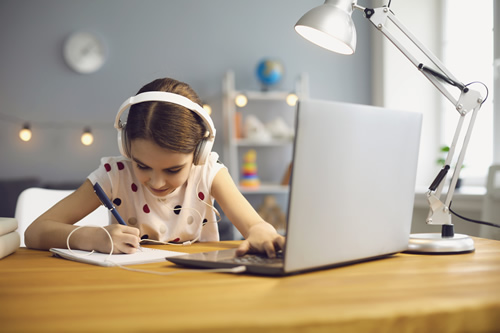Scholastic, with YouGov, surveyed public school Pre-K–12 educators in winter 2020 to gather their thoughts on equity in education, literacy instruction, family engagement, professional development, and funding priorities. This summer (July 23–August 4), amid the spread of the COVID-19 pandemic, Scholastic re-contacted 790 of these educators to see how their views shifted and ask new questions about their priorities and feelings heading into a new academic year.
The full summary of the research findings, here on the Scholastic EDU blog:
https://edublog.scholastic.com/post/teachers-and-principals-reflect-covid-19-and-academic-year-ahead
Here are some key takeaways:
- Nearly all educators report that during the school closures, food was provided to students outside of the school day (99%), up from 58% over the winter.
- While 44% of teachers say they increased their efforts compared to pre-COVID to encourage students to read independently, just 14% believe independent reading actually happened more often during the COVID school disruption.
- 78% of educators say they expect to have fewer students starting the school year ready for grade-level work than in years past.
- The resources teachers need to support literacy instruction in distance learning are: programs that blend teacher instruction with digital resources (78%), digital texts that can be used for whole or small group instruction (74%), and programs that combine multiple types of formats and activities (72%).
- Teachers do not feel they’re being heard in their school or district’s planning for distance learning, or in planning for the 2020–21 academic year overall—only 35% and 33% agree that teacher voices and views are being listened to, respectively.
- Educators share that their top COVID-19-related concern is the impact on students’ social-emotional wellness (86%).
- Only 11% of educators report that their schools were extremely or very effective in supporting students’ social-emotional needs during the COVID-19 school disruption. Only 12% say that schools are extremely or very prepared to do so in the 2020–21 academic year.
- Nearly all teachers (97%) continue to feel their careers are challenging, yet rewarding.
- SchoolStatus Launches SchoolStatus Boost, an Innovative Educator Development Solution for Enhanced Teacher Growth and Development - April 22, 2024
- Frontline Education Releases Inaugural K-12 Lens Survey Report To Guide K-12 Decision-Making - April 20, 2024
- Arizona’s Apache Junction Unified School District Supports Innovative Teaching and Learning with New EdTech Resources - April 19, 2024


